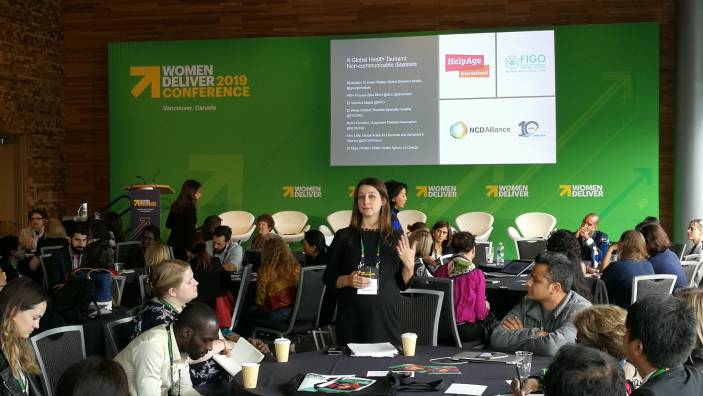
Del 6 al 9 de junio se llevó a cabo Women Deliver 2019, el encuentro más grande del mundo sobre igualdad de género. En Vancouver, Canadá, se discutieron los derechos y el bienestar de las mujeres, con un enfoque particular en la salud y los derechos maternos, sexuales y reproductivos.
Al encuentro asistieron importantes líderes del mundo como Sahle-Work Zewde, presidenta de Etiopía; Tina Tchen, ex asistente del presidente Barack Obama; Ziauddin Yousafzai, cofundador de la Fundación Malala y Justin Trudeau, primer ministro de Canadá, quien durante su discurso prometió incrementar el aporte de su país a la salud sexual y reproductiva del género femenino.
En estos paneles más de 8.000 líderes mundiales, ministros, parlamentarios, miembros de la realeza, ejecutivos del sector privado, líderes de la sociedad civil, jóvenes, defensores, académicos, activistas y periodistas de todo el mundo llegaron al Women Deliver 2019 para sumergirse en una conversación sobre las barreras y oportunidades para lograr la igualdad de las mujeres.
Woman Deliver 2019 también fue un espacio de gran importancia para HelpAge International, ya que desde allí se garantizó que la población de mujeres mayores también fuera escuchada a través de los cinco paneles en el que la organización participó.
Durante estos encuentros se resaltó la importancia de incluir a las mujeres mayores en la recopilación y el análisis de datos de salud, desglosados por sexo, edad y discapacidad para asegurarse que no se les niegue el acceso a la atención médica básica, incluidos los servicios sexuales y reproductivos.
Por esto, HelpAge destacó también la importancia de investigar mejor a esta población. De esta forma, se podría comprender mejor las necesidades y los derechos sexuales y reproductivos de las personas mayores, en particular los de las mujeres mayores.
Finalmente, HelpAge International hizo un llamado para que en el próximo encuentro de Women Deliver tuviera un mayor enfoque y participación de las mujeres mayores para abordar los derechos y necesidades de esta población.
